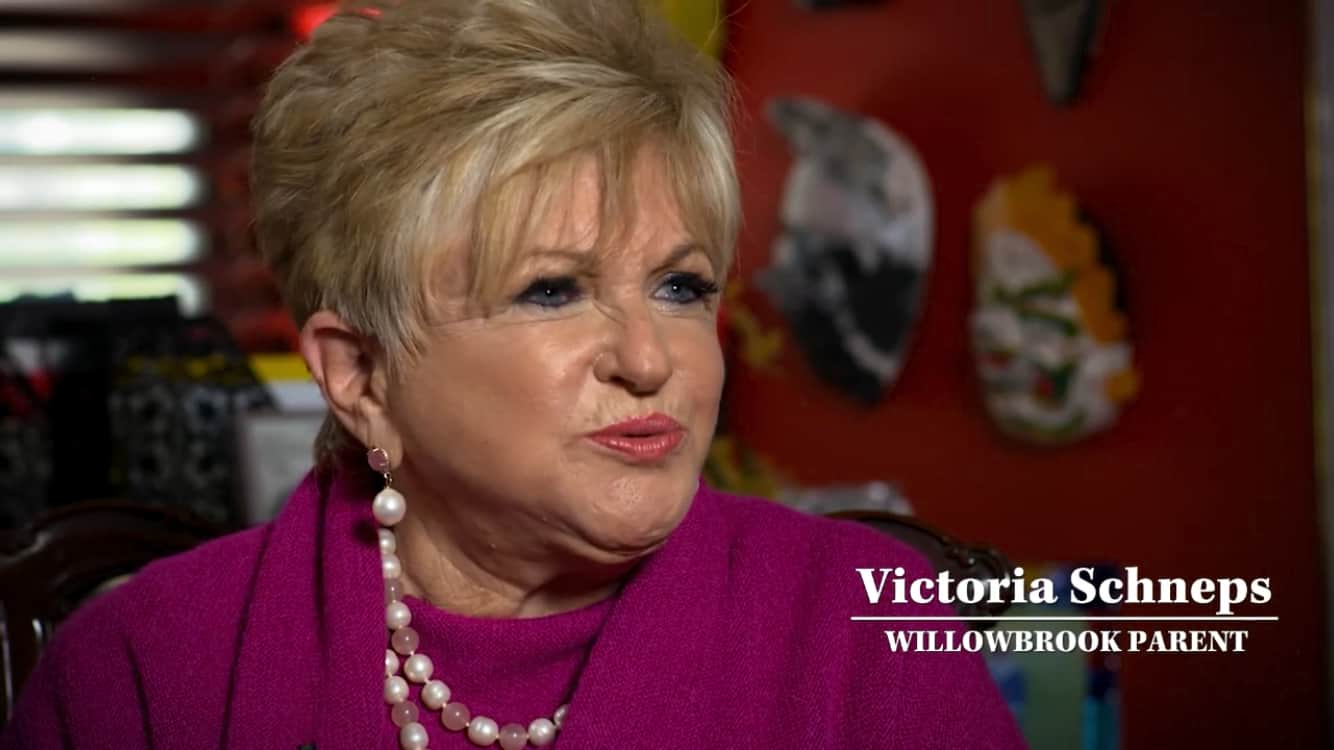I Am Geraldo: 50 Years, a four-part documentary series lauding veteran broadcast journalist Geraldo Rivera’s half century in the TV news business, debuted Tuesday on Fox New Channel’s streaming service, Fox Nation.
The hour-long first part of the series takes a deep dive into the story that put Rivera on the map: His 1970 exposé for WABC-NY’s Eyewitness News revealing inhumane treatment of people and children with mental disabilities living largely unsupervised in squalor at Willowbrook State School, a since-shuttered institution on Staten Island that housed about 6,000 patients.
“The sound, the smell, the sights of it is something that is branded on my soul,” Rivera, who grew up in West Babylon, said in the film while recalling how the story still sticks with him. “The mournful wail that the kids were making is the soundtrack of my nightmares.”
To get the story, then-rookie reporter Rivera and a film crew sneaked into Willowbrook’s filthy children’s ward and broadcast the footage despite threats from New York State officials who oversaw the facility at the time. Viewer reaction to the initial story and ensuing series sparked a movement and class action lawsuit that ultimately ended the widespread warehousing of the developmentally disabled decades ago.
“This story had national implications,” Al Primo, creator of Eyewitness News, said in the film. “That national exposure led to other situations in other cities that action was taken on.”
After Willowbrook was shut down, it and institutions like it were replaced by smaller, community-based centers for the developmentally disabled.
Among those who opened the first such center after the scandal was the parent of a child at Willowbrook, Victoria Schneps, owner of Schneps Media, the parent company of Long Island Press, and founder of Life’s WORC, a nonprofit dedicated to helping the developmentally disabled. But the transition from institutions to group homes was not without friction.
“The neighbors were so furious that we were coming that they sued up to stop us from completing the sale and operating that house as a group home,” Schneps said in the film.
The Garden City-based organization later opened its first group home in Little Neck and named it after Rivera. The nonprofit now has 45 group homes and a dozen nonresidential programs across Long Island, Queens, and Manhattan that provide support for more than 2,200 individuals. The group marks its 50th anniversary in 2021.
“It was a crime against humanity,” Rivera said in the film. “We knew we had to do something about it. We knew we had to find a remedy to liberate those children … Community-based residences are not only far more humane, they’re also more cost effective.”
The next three episodes of the docuseries will be released throughout the year and will delve into Rivera’s most prominent reporting throughout his storied career.































